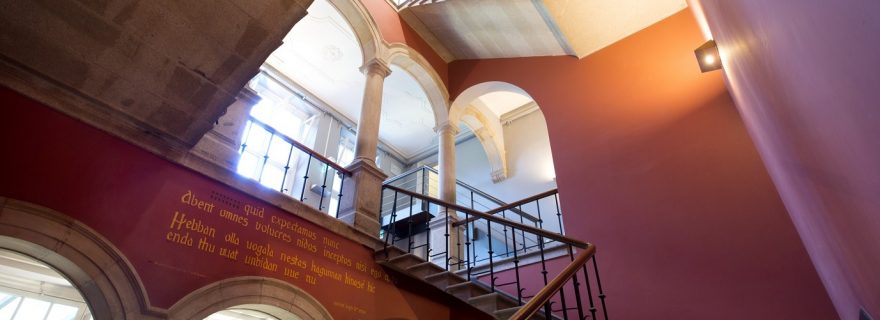Coronavirus: Will Students and Staff with Disabilities Disappear in the (Social) Distance?
It is becoming increasingly clear that the corona virus has never been ‘the great equalizer’. Instead, the pandemic reinforces existing differences and increases the inequitable situation of a number of communities. Amongst them are students and staff with disabilities within our academic community.
Additional difficulties
Students and staff with disabilities, who were already dealing with issues before the corona crisis, are now confronted with additional obstacles. It is more difficult for them to navigate their studies or work due to barriers caused by inaccessible learning and working environments. Moreover, physical and mental consequences of the corona crisis pose a new problem. Many plans for (para)medical treatment - such as surgery, physiotherapy as well as psychological and psychiatric care - have been postponed or modified, being deemed too great a risk to carry out at the moment. Furthermore, the social and informal care networks on which people with a disability rely in order to function in their day-to-day lives are now overburdened or unavailable. People with physical and mental conditions have abruptly been separated from their support systems, quite literally overnight.
Support for students and staff
As a result of the corona crisis, students and staff with disabilities in particular are at risk of being overlooked. Students with disabilities may not be able to keep up with online courses and they are at risk of finishing their studies with a delay (or not at all). Staff members may find themselves lagging behind or unable to work altogether. To remedy this situation, two things are needed. Firstly, the existing support structures should be employed to their full potential. An overview of the support Leiden University offers can be found at the end of this blog entry.
Hybrid education
Secondly, tailor-made solutions are required to get everyone safely through this crisis. Hybrid education - partly on-campus and partly online - may be such a solution, in particular when lockdown measures are downscaled. Students with certain disabilities may benefit from lectures in physical classes, because of the structure and social interaction class attendance provides. On the other hand, on-campus presence might be difficult or impossible for certain students and staff. This includes people who are, for example, more susceptible to the virus, are at greater risk when they contract it, or have people around them who are at risk. They are not only at risk on-campus, but also while travelling to and from the university. Online education helps this group of people in minimising the risk of contracting the corona virus and allows them to remain involved in academic life. It is paramount that online education is accessible for all students and staff who are unable to be present on campus, now and in the (near) future. Therefore, the Diversity Office has compiled a guideline for accessible online education, which is incorporated in the remote teaching website.
Getting through the crisis safely
The corona crisis affects all of us in different ways, but we are together in that we strive to move forward safely. It is more important than ever to implement tailor-made measures and support and to consult with disproportionately affected individuals and groups. Let’s work together to ensure that everyone, including students and staff with disabilities, can safely study and work at Leiden University.
Support for students and staff with disabilities
- Students
- Fenestra Disability Centre
- Listening Phone (071 527 1132 or studentsupport@leidenuniv.nl)
- Student support groups (popcornerthehague@leidenuniv.nl)
- Healthy University@Home website
- Staff
- Guidelines for accessible online education at the remote teaching webpage
- HRM coaches (coacheshealthyuniversity@bb.leidenuniv.nl or 071 527 3193)
- University doctors
- Healthy University@Home website




0 Comments